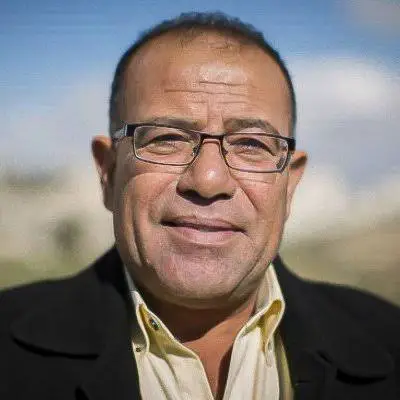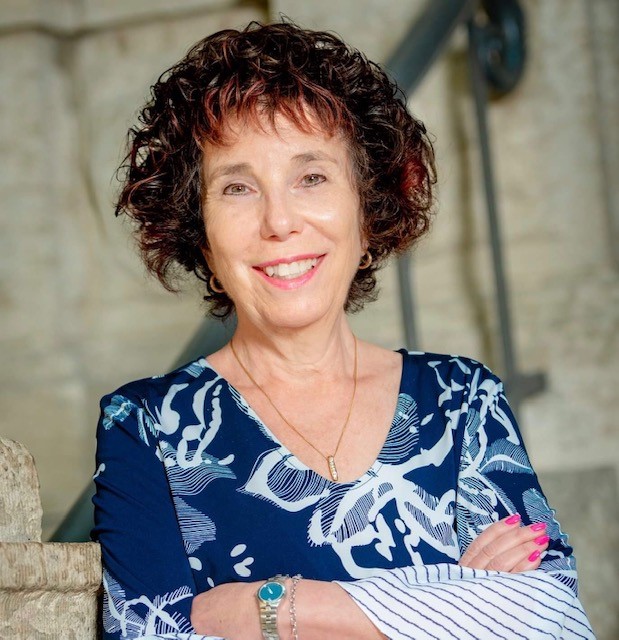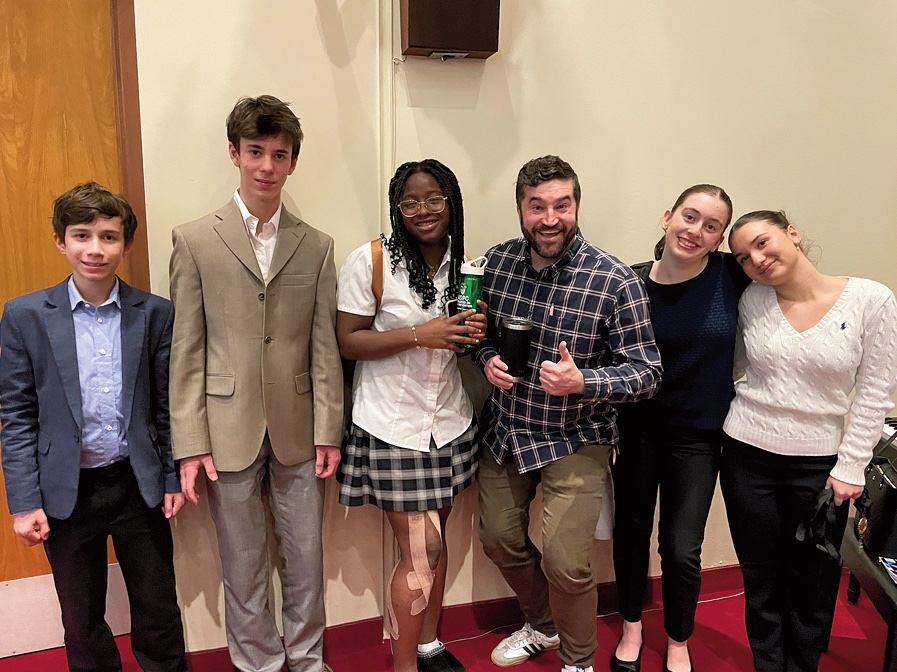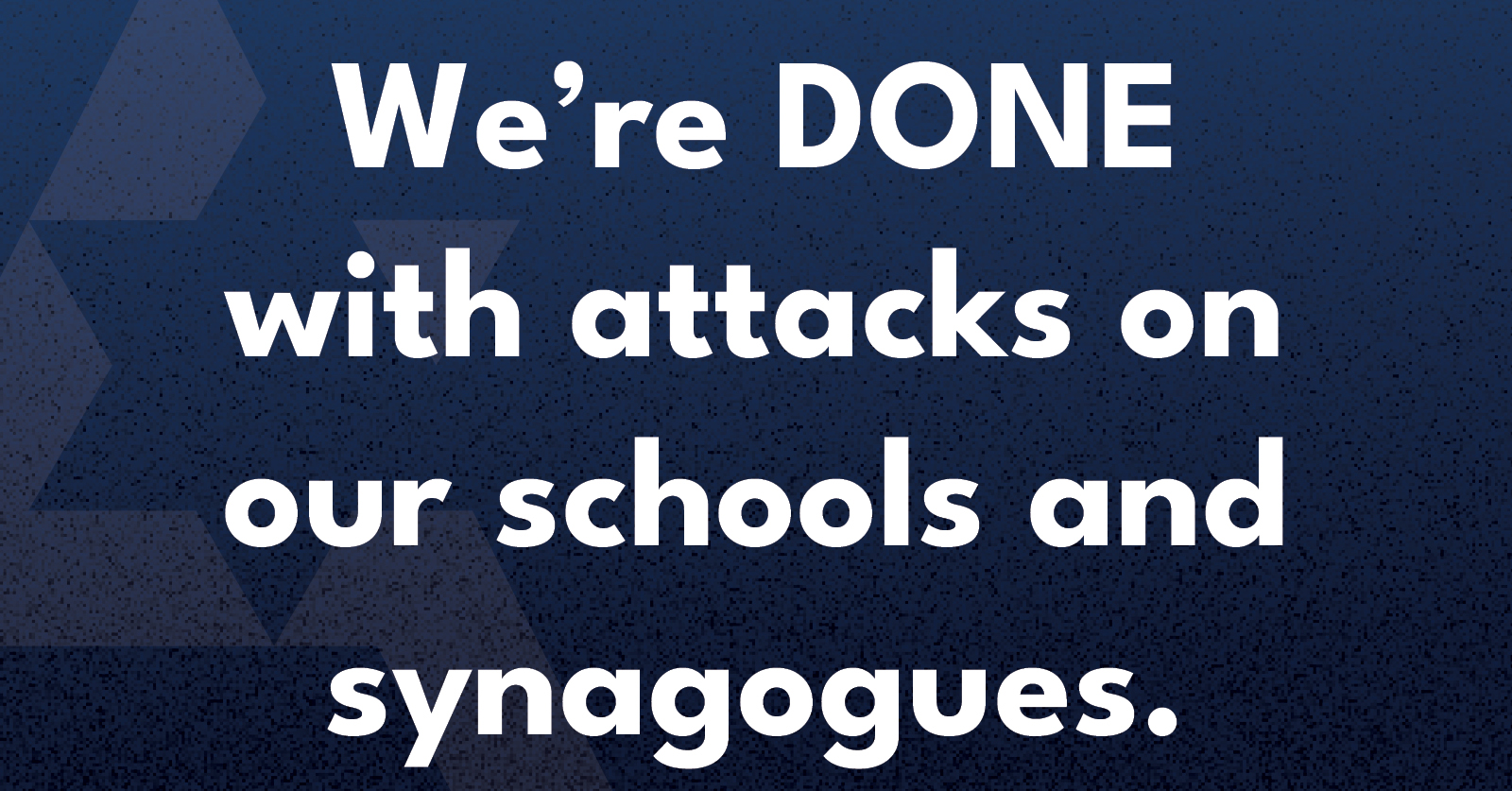Local News
“Students Supporting Israel” suspended by University of Manitoba Students Union

By BERNIE BELLAN (Posted March 6, 2024) In October 2022 an art history teacher by the name of Erika Lopéz Prater was fired from her position at a small liberal arts college in Minnesota, Humline University, for having the temerity to show depictions of the Prophet Muhammed to students in her art history class
Lopéz Prater had warned students in advance that images of holy figures, including the Prophet Muhammed and the Bhudda, would be shown in the course and had asked students to contact her with any concerns, but she said no one did.

One student in the class, Aram Wedatalla, who was also president of the Muslim Student Association, however, claimed to have been deeply offended by the image of Muhammed that was displayed and complained to the university administration. Subsequently Lopéz Prater was fired from her position. As an adjunct professor, however, she did not have the protections granted to tenured professors.
Lopéz Prater later sued Humline on several grounds, including unfair dismissal and emotional distress, but a judge has since dismissed almost all elements of her lawsuit.
What happened to Lopéz Prater though and the ensuing controversy provided a salutary lesson in political correctness running amuck – and the power of members of certain groups to intimidate university administrations and student groups into total acquiescence to their demands to silence any type of discussion that some members of those groups may deem objectionable.
Such apparently was also the case recently at the University of Manitoba where a Muslim speaker by the name of Bassim Eid spoke to students at that university on Monday, February 26. The event was sponsored by two groups: Bridges for Peace and Students Supporting Israel.
According to a CBC report describing what happened at that event and subsequent to it, “Political analyst Bassem Eid, a Palestinian who is a regular commentator on Israeli TV and radio, gave a lecture at a Monday event at the University of Manitoba, organized by Bridges for Peace and Students Supporting Israel, called: ‘What led to the recent war between Israel and Hamas.’
” ‘When it comes to ideology, the Muslims are blind,’ Eid is heard saying during the event’s question period, in audio reviewed by CBC News. He can also be heard calling the ideology of Muslims ‘a major problem,’ saying they aren’t ready for change.
“Belkis Elmoudi, a Muslim student at the university who attended the event, says she couldn’t believe what she was hearing.
” ‘I knew I had to get out of there, because I did not feel safe,’ she told CBC News on Thursday (February 29).
” ‘I mean not only were those comments made, [but] no one stood up and said anything, so it just made me feel very isolated, alone and scared.’
Following Eid’s talk and the subsequent complaint made by Elmoudi, the University of Manitoba Students Union decided to suspend Students Supporting Israel, according to UMSU President Tracy Karuhogo, “while an investigation into the event takes place.”
We have attempted to obtain a response from someone from UMSU as to the reasons that Students Supporting Israel has been suspended.
We posed the following questions within an email on Monday, March 4:
“1. Is the suspension still in effect?
“2. If the answer to 1 is yes, can someone explain the reasons behind the suspension?
“3. Is it now UMSU’s policy to suspend an entire group because one student has a complaint about something related to that group?
“4. If UMSU does believe it was justified in suspending Students Supporting Israel, is there anything that would prevent any other student from asking that the Muslim Students Association at the University of Manitoba be suspended for any activities that a student might consider threatening? In other words, where do you draw the line?”
To date, we have not received a response. If we do hear back from someone from UMSU we will update this article.
We also emailed Jeff Lieberman and Adam Levy of the Jewish Federation, along with Gustavo Zentner, CIJA representative for Manitoba and Saskatchewan, asking them whether anyone from either group had attempted to intervene in the matter. (We also cc’d Haskell Greenfield, Head of Judaic Studies at the U of M.) In addition, we have reached out to a representative for Students Supporting Israel. Again, if we hear back from that person we will update this article.
We wrote:
“I’ve been trying to get more information about the suspension of Students Supporting Israel…the notion that the group has been suspended by UMSU is pretty outrageous. Does anyone know what the status of that suspension is?
“This all reminds me of a story I read last year about a Minnesota college professor who was fired from her position teaching art history at a very small college because she dared to show depictions of Muhammed.
“Apparently, even though she had told students in advance that she would be doing that – and asked whether anyone in the class objected, a Muslim student (who hadn’t spoken out prior) later claimed that they were traumatized by seeing those images.
“It all has to do with “trigger warnings”‘ and how any student can silence discussion by saying they’re traumatized by that discussion.
“Has the Federation or CIJA intervened in this matter?”
We received the following response from Adam Levy, Public Relations and Communications Director for the Jewish Federation:
“Hi Bernie,
“Thank you for reaching out regarding the suspension of Students Supporting Israel (SSI).
“Federation and CIJA have been actively advising and supporting SSI as they navigate this challenging time. We are hopeful that the investigation that has been undertaken by UMSU will clear SSI of wrongdoing, and not hold them accountable for Bassem Eid’s comments.”
We also received the following email from Haskell Greenfield:
“In his talk, Bassam made some generalizations about the ideology of Muslims. He has issued an apology since then. But the student union at the University acted precipitously, I would say rashly. They suspended SSI pending an investigation without contacting the SSI student club first. It is a recognized club for the University of Manitoba Students Union. They suspended the SSI because a Palestinian student made a complaint. They did the suspension solely on the complaint and without contacting SSI to get their point of view. We believe that SSI is working toward explaining their side of the story and hoping for reinstatement. SSI did not make any negative statements about Arabs or Muslims or Palestinians. In fact the moderator at the event disavowed the statement afterwards, saying this does not represent SSI or his own beliefs.
“The same day SSI was suspended, a motion was also put forward by the executive of the University of Manitoba Students Union that would define a new form of anti-Palestinian racism. This very problematic motion prevents anyone from denying the ‘Nakhba.’ It would make denying the ‘Nakhba’ a racist act.”
Local News
Cheryl Hirsch Katz, Jewish Child and Family Service’s longest serving staffer, set to retire at end of the month

By MYRON LOVE “I loved working at Jewish Child and Family Service,” says Cheryl Hirsh Katz, who is due to retire at the end of June. “I have always appreciated the warm and welcoming atmosphere here. I feel that the people working here are my extended family. I am going to miss my colleagues”.
“I have derived great satisfaction over the years to have been able to help many people in our community of all ages through my work at JCFS,” she continues.
After 44 years at the agency, Katz, the longest-serving member of the staff, was given an appreciative send-off at the JCFS’s recent (June 23) Annual General Meeting at the Shaarey Zedek Synagogue.
The daughter of Art and Bess Hirsh, Cheryl grew up in Garden City. She attended Peretz School, then Jefferson Junior High and Garden City Collegiate. She joined the staff of JCFS in 1981, shortly after receiving her Bachelor of Social Work degree.
She earned an MSW in 1990.
“I chose to become a social worker,” she recalls, “because I always wanted to be able to help people.”
Katz was originally hired by JCFS to work with newcomers. After a couple of years, she was given responsibility for looking after the needs of older adults.
“I really enjoyed working in older adult services,” she says. “That is where I spent the bulk of my time at JCFS.”
After ten years as a case worker, she was promoted to a supervisory role. Later, she was also given responsibility for mental health and addictions programming and settlement services, while keeping the older adult files under her purview.
“As a supervisor, I wasn’t directly involved with individual clients,” she points out. “I was more involved with programming. Among the programs for seniors we organized were – for example – sessions on elder abuse, digital storytelling and memory loss.”
She notes that one of the trends she has seen over the last 44 years is that people are living longer and living in their homes longer. A lot more of our clients are living well into their 90s,” she observes. “We have had to continually expand our staff and the services we provide in order to accommodate the growing demands of an aging population.”
She also spoke of the mental health needs of seniors and aging Holocaust survivors.
She says that she has mixed feelings about leaving JCFS. “After so many years working full time, I am going to have to create a new routine,” she comments.
She notes that, now that she is retired, she will have more time to spend with her parents – who are in their 90s.
And then, there are the two dogs to look after. “I will have time now to try new activities,” she says. “ I might learn to play mah-jong.”
She speaks about maybe doing some traveling – although her husband, Murray, is still working full time.
(She and Murray have one daughter, Farah.)
“Retirement may also include some volunteering,” she adds.
It is quite likely, she will be continuing her association with JCFS but in a volunteer capacity.
Local News
Gray Academy students shine in provincial, national debating competitions

By MYRON LOVE It has been another good year for Gray Academy’s high school students who participated in provincial and national debating competitions. The best results were recorded by Grade 9 student Noa Mednikov, who finished fourth overall nationally, fourth in interpretive reading, and fifth in persuasive speaking at the junior National Public Speaking Championship in early May in Vancouver.
Last October, in the Junior Provincial British Parliamentary Championship – which was held at St. John’s-Ravenscourt – Noa and her partner, Raya Braunstein, finished third as a team while Raya placed third in individual debating.
Their fellow Grade 9 student Maxim Moscalenkov tied for first in persuasive speaking in Vancouver, while the Gray Academy team of Gabe Tapper and Aaron Koplovich finished fifth. Aaron also finished fifth in his individual debate.
Earlier, in March, Maxim finished fifth in the Provincial Juniors debating competition, which was held at Balmoral Hall He and his debate partner, Nate Shenkarow, finished seventh among the teams entered. Last November, he and partner, Ethan Tenenbein, finished seventh in the Junior Prepared Tournament – just behind the Gray Academy team of Nate Shenkarow and Jack Kay.
At the senior high level in that competition, the team of Jacob Tenenbein and Jonah Novoseller finished fourth and Jacob was recognized as fifth best in an individual capacity. Jonah and Jacob also paired up to win the Asper Cup, which was held at their home school.
Jacob represented Manitoba at the Junior National Speech Championship in Vancouver in May and, last October, he and Grade 12 Gray Academy students Julie Krozkin and Daniel Bokser represented Canada at an international debating tournament in Bermuda.
Gray Academy’s debating program was introduced by Linda Martin in 2003. She also led the debating teams at Balmoral Hall. In 2011, Martin was succeeded by Gray Academy high school English teacher Andrew Kaplan.
“Andrew has done a wonderful job with the debating program” says Martin, who has a debating trophy at Gray Academy named in her honour, as well as a provincial trophy for best individual junior debater. “Over the years, Gray Academy students have done very well in many local, national and international competitions,” she adds.
About three weeks ago, this writer had the opportunity to sit down with Andrew Kaplan and six of the school’s top debaters while they discussed the benefits of learning how to debate. According to Noah Strauss – who competed in the Junior Provincials at Balmoral Hall in March, public speaking leaves him with a feeling of accomplishment.
“It’s a good skill set to have,” he observes. “It builds confidence.”
“A benefit of being able to debate is that you learn how to convince people that you know what you are talking about,” adds Maxim Moscolenkov.
Raya Braunstein notes that being able to debate is a skill that she expects to be helpful in many university courses which she may choose to take.
As Andrew Kaplan notes, the ability to express yourself has a great impact in whatever career you choose to pursue.
He points out that debating is compulsory at Gray Academy for all Grade 7 and 8 students – and students can continue debating as an option in the higher grades
Of course, competitive debating is not for everyone. For those students who opt to take that path, the journey begins with internal school debate competition – with the top debating teams and individuals qualifying for local tournaments and – potentially – beyond.
Andrew Kaplan reports that a small number of high schools in Winnipeg and southern Manitoba have active debating programs – including St. Johns Ravenscourt, St. Paul’s High School, St. Mary’s Academy, Garden City and Maples Collegiates in the Seven Oaks School Division, St. Maurice (a Catholic School), as well as Morden Collegiate and Dasmesh, a Sikh private school.
Kaplan expresses his appreciation to the Asper Foundation and an endowment spearheaded by the Kives Family for providing funding for the Gray Academy debating program – as well as the Andrew Slough Foundation – which was established by his friends in memory of the outstanding former Ravenscourt student debater and lawyer who passed away suddenly two years ago at the still young age of 38.
I am confident that our Jewish community can look forward to the continued success of Gray Academy’s star debaters and to the continual emergence of future stars as the times goes by.
Local News
Antisemitism has crept into grade school in Canada

Antisemitism in Canada has moved beyond protests and politics; it is now entering classrooms and altering how Jewish children see themselves functioning within them.
A a university student I have observed the experience of my younger brother in grade eight as a Jewish student. Over the past few months, his school has been at the center of several deeply troubling incidents that have made him feel unsafe in our parks, community, and even his school. Swastikas were drawn around the community, in parks and ponds. Additionally, an older man, who claims to be a pro-Palestinian influencer, stood outside his predominantly Jewish school wearing a keffiyeh, filming a video which then circulated between students on TikTok.
This same man later showed up to our local Jewish community center in keffiyeh to allegedly watch his son play basketball where my brother and many of his classmates go for their lessons, basketball games, and Jewish events. These moments made him and his peers feel watched and targeted just for being Jewish. Local political representatives condemned the incidents and raised awareness about antisemitism, but the fear among students didn’t go away. The feeling of being targeted for simply existing has been taught to my brother, something my parents had tried their hardest to escape from.
Most recently, my brother was chosen to represent his school at a regional science fair. When one of the judges arrived wearing a keffiyeh, he froze. For many, including my brother after the incidents he has faced, the keffiyeh represents a political message. But even more so for my younger brother, it is tied to the fear and intimidation he had already experienced. He felt nervous, distracted, and unsure of how to act.
This is not about silencing political expression. It is about a child who came to share his ideas and left feeling uncertain and afraid. It is about the atmosphere forming in Canadian schools, where Jewish students are being made to feel targeted and unwelcome.
His school made an effort to address the incidents, but the impact is lasting. Posts on social media, much can be very vague at times about inclusion cannot fully undo the feeling of being singled out. A kind word from a teacher does not erase the fear that builds when threats are left unspoken but deeply felt.
I am writing this as a sister who watched her younger brother lose a moment that should have been filled with confidence and pride. He deserved to feel safe. So do all Jewish students in this country.
Moving forward, schools must take concrete steps to protect all students. Antisemitism cannot only be addressed when it becomes violent or overt. It must also be recognized when it appears as intimidation, symbolic targeting, or political messaging that creates fear among students. Children should never have to question whether they are safe in their own classrooms or community spaces.
Events that are meant to support and celebrate students must remain focused on them. Individuals who feel the need to bring political symbols or messages into school grounds or children’s events should not be welcomed in those spaces. Schools must make it clear that their environments exist to support learning, safety, and inclusion, not to host agendas that can intimidate or isolate students.
Administrators and educators must develop clear guidelines for identifying and responding to antisemitic behavior in all its forms. This includes strengthening security measures, offering ongoing staff training, and engaging directly with Jewish families to understand their concerns. Inclusion is not a one-time statement. It is a responsibility that must be reflected in everyday decisions and actions. No child should ever feel unsafe or unwelcome because of their identity.
The author is a Campus Media Fellow with HonestReporting Canada and Allied Voices for Israel who lives in Toronto.
